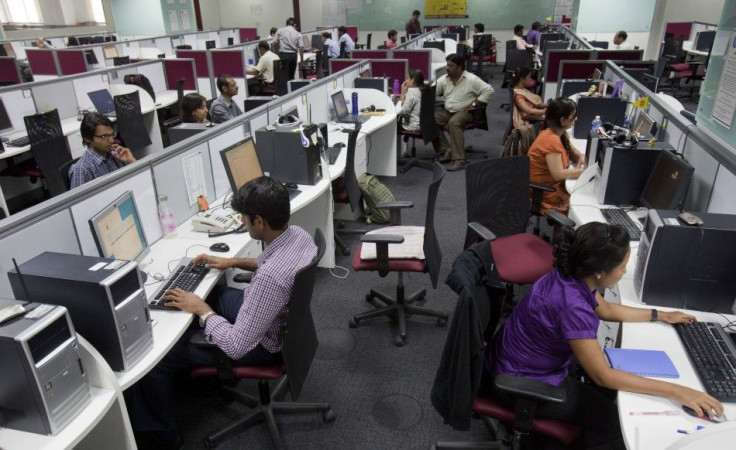Tech Company Layoffs: Indian Information Technology Employees Brace For Job Cuts As Growth Slows

India's information technology services companies could lay off 30,000 to 40,000 mid-level workers by the end of this fiscal year, T. V. Mohandas Pai, the former chief financial officer of Infosys Ltd. (INFY), has warned.
Pai characterized this job cull as normal in a maturing sector, saying it's similar to what happens in western corporations, which also periodically face growth slowdowns.
"As in all sectors in the West, in India too when a sector matures so many people will be there in the middle level who will not be adding value to the salary they get," Pai said. "It's going to happen again and again and again every five years.”
Indeed, layoffs have already hit the Indian information technology sector in the past few quarters.
Pai’s former company, Infosys, characterized layoffs as a part of its overall normal attrition.
Cognizant Technology Solutions Corp. (CTSH), a New Jersey-based company with a major presence in India, now reserves the right to transfer or fire any Indian employee who has not been on any billable projects for 35 days.
Cognizant said it will lay off as many as 7,000 employees in India in the next few months. Some of those workers would be qualified for retraining for other jobs in the company, however. Cognizant is targeting cost savings of $150 million to $200 million from the job cuts.
Infosys said it seeks to save as mjuch as $150 million through cost-cutting next year although the company has yet to formally announce layoffs yet.
The two companies each employ about 200,000 people in India.
V. Balakrishnan, the former chief financial officer of Infosys, told India’s WION TV channel: "I think today the growth in the industry is down. We are talking about single-digit growth. When we are talking about that kind of growth, then we should focus on containing costs. On one side customers want value for money, they spend, and on the other hand you have cost structures which is not tuned to the current environment.”
Balakrishnan added that it is “natural” for companies to look internally and see how to “reduce the fat in the middle.”
“Over a period of time because of the legacy business, companies have built a lot of people in the middle layers,” he said. “So that middle layer has to be reduced for them to become competitive in the market. So that is what is happening in all information technology companies.”
Moreover, as the U.S. government has restricted the H-1B visa program for foreign workers, Indian information technology services companies are, in turn, hiring more people in the U.S. itself, despite the higher costs involved.
For example, Infosys has hired more than 10,000 people in the U.S. at it lowered dependence on workers with H-1B visas in the past two years.
Rejections of H-1B visa applicants has spiked from 6% in 2015 to nearly 24% this year.
Middle-aged information technology workers in India are also losing jobs because the technology is changing and not every company has the capacity to retrain its workers.
A job placement expert named Sudheendra told WION that while the U.S. has largely been successful in migrating to newer technologies, India has not made the transition as quickly. “I sincerely believe this is not a recession of new business opportunities, but that this is a recession of skill sets,” Sudheendra said. “They cannot adapt to newer technologies easily. They naturally become a burden on the institution.”
Indeed, at least a third of India’s information technology workforce, or about 1 million engineers and other specialists, may be unfit or unqualified to be retrained given the rapid changes in software technology and emerging technologies like artificial intelligence, internet of things, cloud computing, blockchain and cybersecurity.
However, the impending layoffs, especially in southern India’s tech hub, has led to a prominent trade union to demand government intervention to protect workers.
V.J.K. Nair, the president of The Karnataka State IST/ITES Employees Union, said a petition would be filed with the state labor department against layoffs.
Nair noted companies must strictly observe labor laws.
“These companies cannot just throw their workers out since there are laws that protect employee rights,” he said. “The Industrial Disputes Act states that layoffs of industrial workers can be done only with prior permission from the government.”
© Copyright IBTimes 2024. All rights reserved.




















